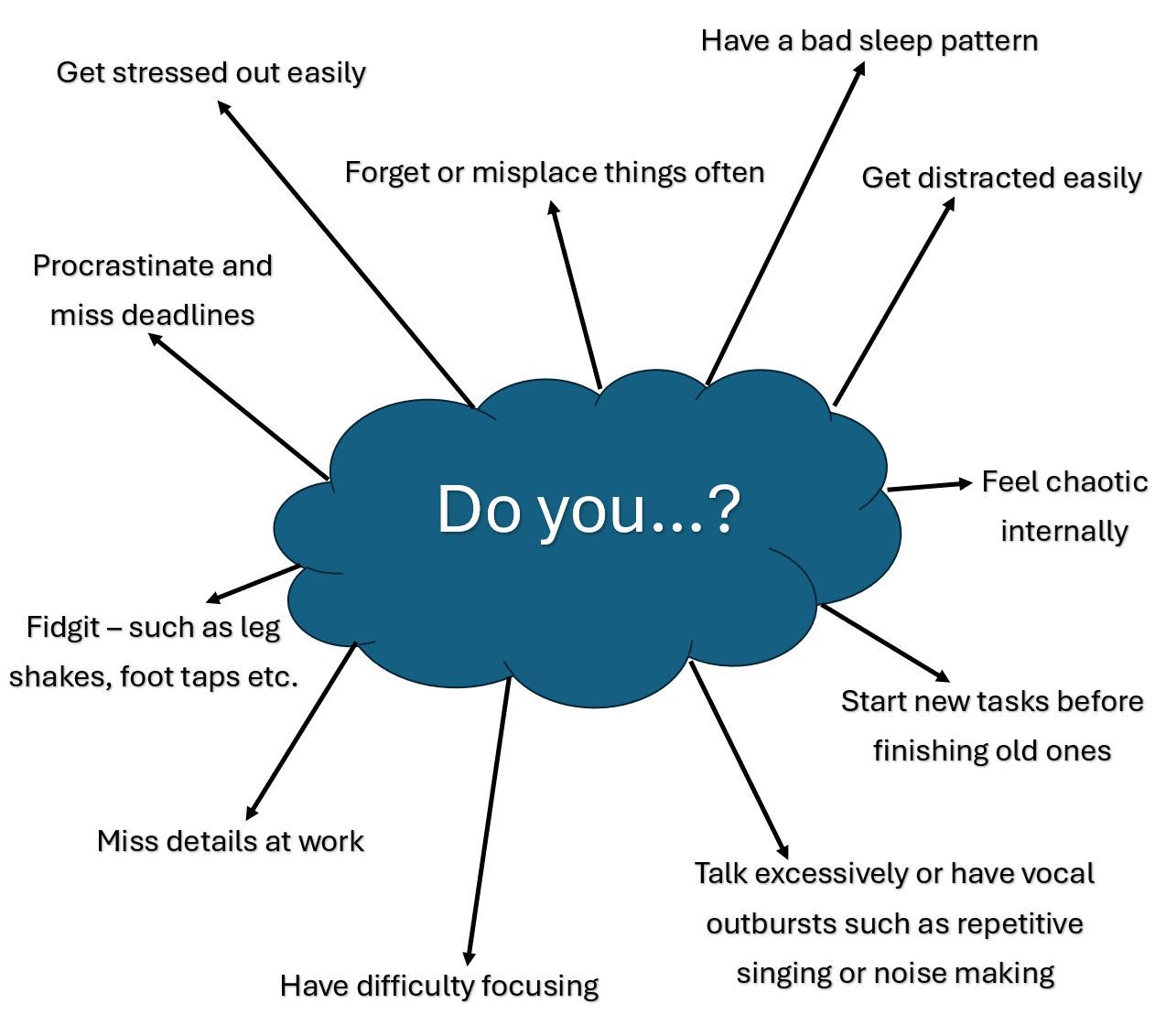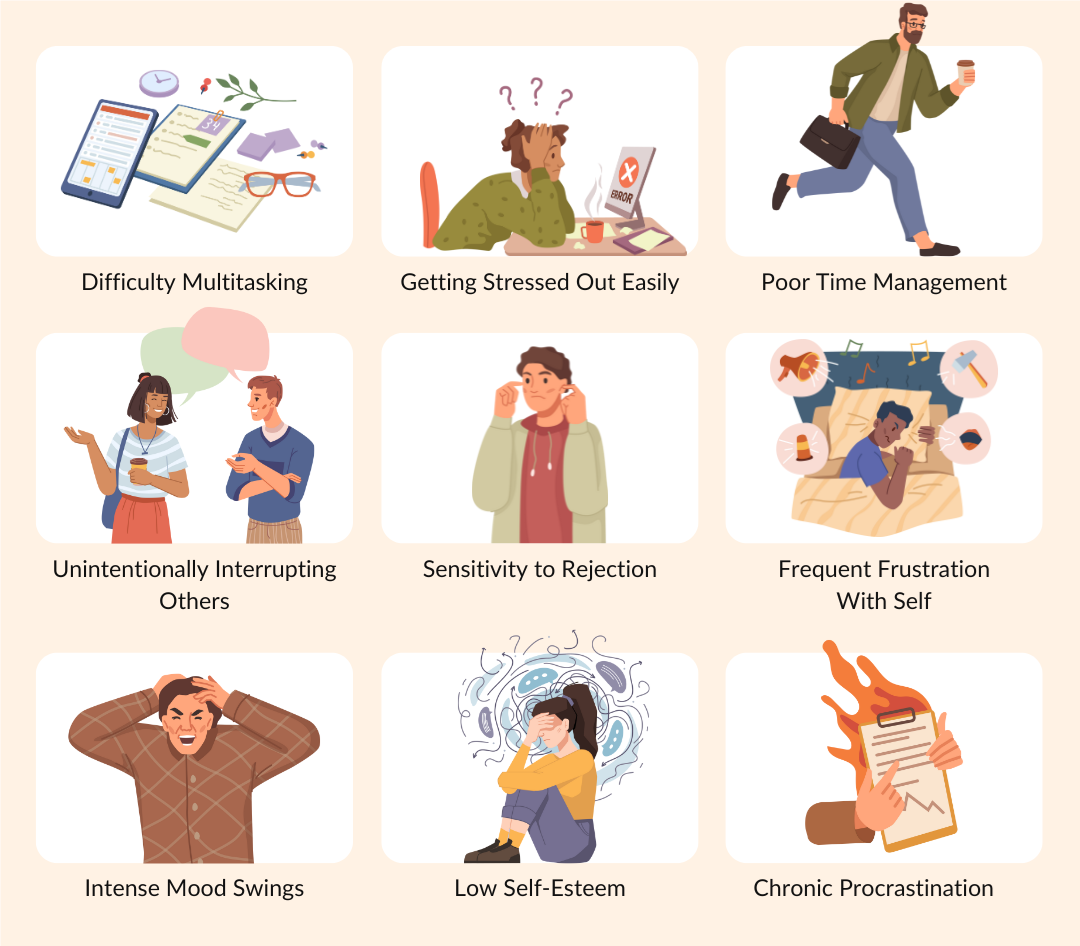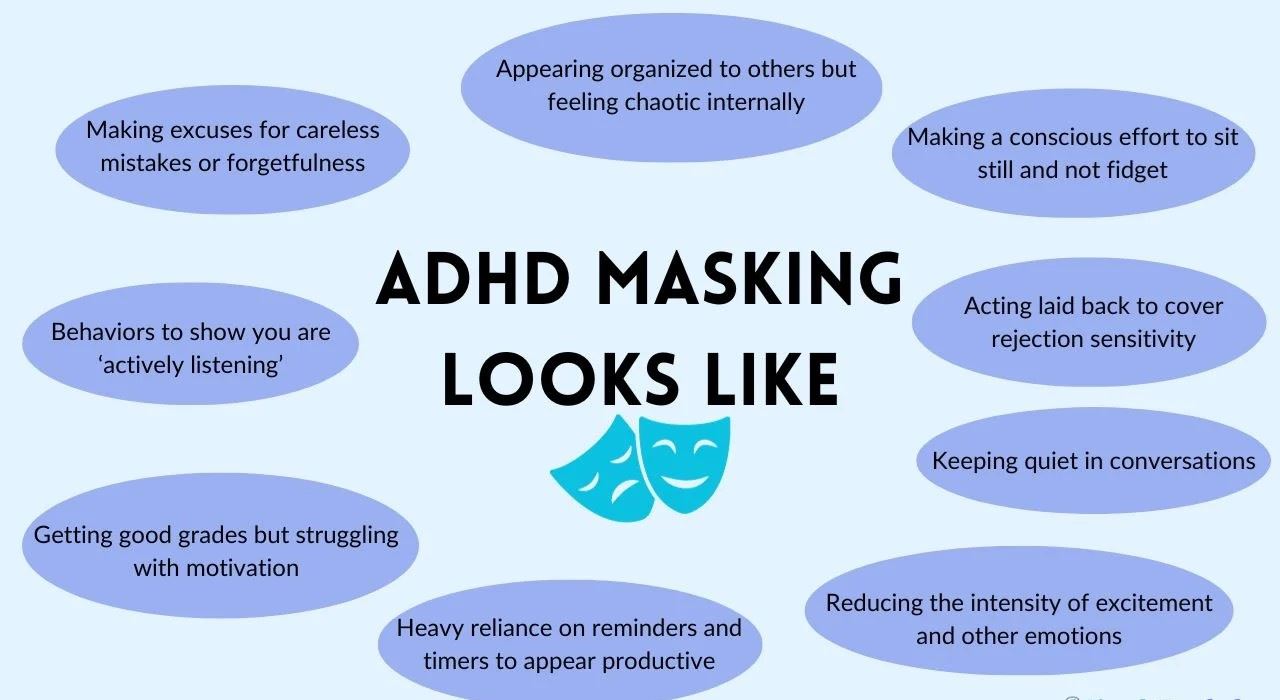ADHD in Adults



ADHD is a disorder that is defined through analysis of behaviour. People with ADHD show a persistent pattern of inattention and/or hyperactivity–impulsivity that interferes with day-to-day functioning and/or development. Most cases are diagnosed when children are under 12 years old, but sometimes it's diagnosed later in childhood. Sometimes ADHD was not recognised when someone was a child, and they are diagnosed later as an adult.
"I think I have ADHD"
As an adult, there is no Adult Mental Health provision for a neurodiverse diagnosis. Your first step would be to research and learn about ADHD. Do your symptoms match? Speak to your parents if you can, and ask how you were as a child. How was school for you?
Next, complete an Adult ADHD Self Screen Tool such as the one on ADHD UK's website. This will ask you a series of questions to help determin if you have symptoms consistent with ADHD in adults. Once completed, you can print your results off. This will aid future appointments.
Time to talk
Book an appointment with our Advanced Nurse Practitioner, Jane Setchell, and have an open and frank conversation about why you think you have ADHD. Talk about any and all mental health concerns you might have. The goal is to help you with your issues. It is not an “ADHD or not” conversation it should be much wider than that. Following that conversation you and Jane can discuss a referral. There are 2 pathways for Adult ADHD referrals which you should consider before your appointment with Jane:
NHS - Right to Choose
If you are based in England under the NHS you now have a legal right to choose your mental healthcare provider and your choice of mental healthcare team. This means that, for instance, should you decide the waiting time for your ADHD assessment is too long, then you can choose alternative providers. For more information and a full list of exclusions, please click here. Read through the different providers information and their referral methods.
Private
Long waiting lists and lack of accessibility of Right to Choose throughout the UK means private diagnosis and treatment is a serious consideration for many, despite the financial cost often being a significant sacrifice. Most private assessment providers do not require a GP referral for a Private Assessment. Please check with your provider what is covered.
Once you have decided your referral pathway, Jane will be able to aid the referral if necessary. Make sure you bring along your printed ADHD Self Screen Tool and any other supporting documents you feel will aid your referral. Of note, some providers require a letter to be completed by youself. Please ensure you have completed this prior to your consultation.
Wait times
Waiting times for assessments to take place vary between providers. Please contact your chosen provider. Services for Adults with suspected ADHD have very long waits nationally, and our local provider has closed to new referrals. At Cross Keys we will not be able to enter into "shared care" arrangements with online/remote/other providers for Adult ADHD care, and therefore may not recommend an NHS referral at all. Or we may be able to refer to an alternative provider "for assessment/diagnosis only", but not able to share care for treatment. We may suggest a referral to the private sector, but would not be expected to enter into "shared care" with private specialists, as the NHS GP. This is a "commissioning gap" - where the services available on the NHS do not meet the needs of the population - and it has been raised locally and nationally. You may wish to raise it yourself, e.g. with your local MP and/or with the ICB bobicb.plannedcare@nhs.net.
Diagnosis
After assessment, you may get a diagnosis.
Being diagnosed is the first step in helping yourself with ADHD and may unravel complex emotions. Many report that a diagnosis can both be a relief to know what has been challenging them but as well they feel upset to know that they have a mental health condition. It is important to remember that nothing has changed because of a diagnosis – except that you are now empowered with the knowledge of it. What you now do with that insight into yourself is then up to you.
Page created: 03 June 2021